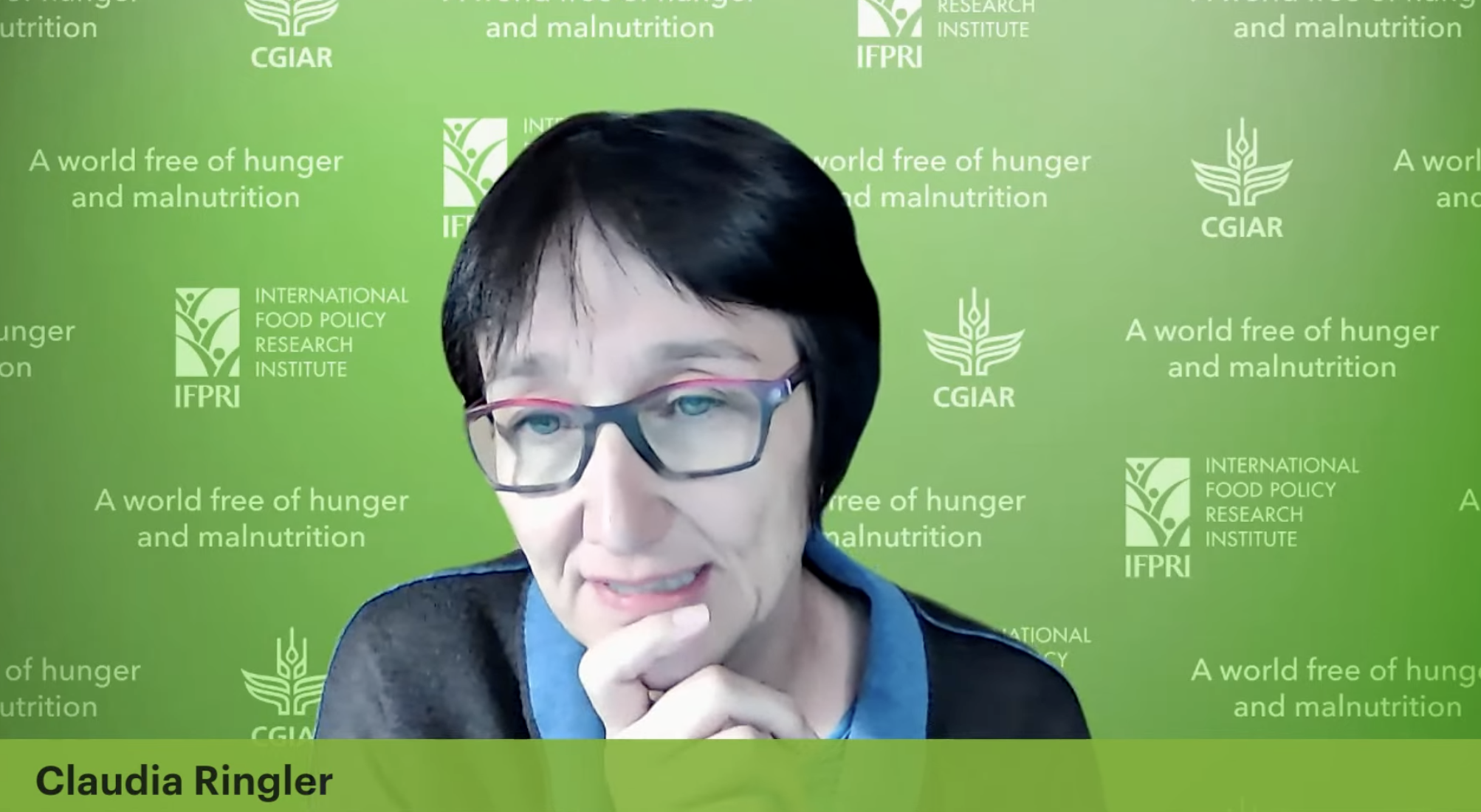The African Fertilizer and Soil Health (AFSH) Summit, held in May 2024, set the stage for improving agricultural productivity and soil health across sub-Saharan Africa. As a follow-up to the 2006 Abuja Fertilizer Summit, which aimed to increase fertilizer use, this summit focused on a more holistic approach to addressing soil health and sustainable plant nutrition. This article summarizes the key discussions from a CGIAR policy seminar co-organized by IFPRI, BMZ, and ANAPRI, with insights from various experts and stakeholders across research, policy, and the private sector on 11 Sep 2024.
Welcome Remarks by Charlotte Hebebrand (IFPRI)
Charlotte Hebebrand, Director of Communications and Public Affairs at IFPRI, opened the seminar by highlighting the significance of the 2024 African Fertilizer and Soil Health Summit. “Despite there having been significant progress in terms of fertilizer use per hectare… there’s still a lot of room for improvement when it comes to plant nutrition,” she explained, referring to the ambitious goals set in 2006 to increase fertilizer use to 50 kg per hectare by 2015. She noted that current usage ranges between 18 and 22 kg per hectare, far short of the global average of 135 kg. Hebebrand emphasized that the new summit focused not just on fertilizers but also on addressing the deteriorating soil health across Africa, stating, “Africa’s soils have suffered loss of organic matter, soil fertility, and have a negative nutrient balance.”
Opening Remarks by Anthony Chapoto (ANAPRI)
Anthony Chapoto, Executive Director of ANAPRI, provided insight into the challenges of translating policy declarations into action. “For the implementation to be successful, we need an Africa-led and Africa-owned process,” Chapoto stated, stressing the importance of national ownership(____Agronomy and Policy…). He emphasized the role of local institutions and the need for partnerships with global actors: “Fortunately, we are not alone in this process… We need to walk this path together with our global partners.” Chapoto also highlighted ANAPRI’s leadership in forming coalitions to support the African Union (AU) in implementing the AFSH Action Plan.
Role of IFDC (Oumou Camara)
Oumou Camara, Vice President of Programs at the International Fertilizer Development Center (IFDC), discussed IFDC’s involvement in supporting the implementation of the action plan. Camara reflected on IFDC’s past work, including the 2006 Abuja Fertilizer Summit, noting that although progress was made, Africa fell short of reaching the 50 kg per hectare goal. “The Nairobi Summit generated momentum, but as we all know, we don’t eat potential—we need to deliver on the promises,” she remarked. Camara outlined IFDC’s strategy to support AU member states in developing roadmaps and investment plans, emphasizing the need for unified action and accountability.
Private Sector Engagement by Habiba Mouttaki (OCP)
Habiba Mouttaki, Chief Commercial Officer at OCP Africa, offered the perspective of the fertilizer industry. OCP, one of the largest producers of phosphate fertilizers globally, has made significant strides in serving African farmers. “Today, the real challenge for smallholder farmers is to have available and affordable inputs that meet their needs,” Mouttaki stated. She stressed the importance of understanding soil needs and customizing solutions to support soil health. Mouttaki also advocated for stronger public-private partnerships, noting, “The industry must play a role by catalyzing investment and showing that working in Africa for Africa and by Africans can make things happen”
Agronomic Solutions at Scale by Job Kihara (Alliance of Bioversity International and CIAT)
Job Kihara, an agronomist with the Alliance of Bioversity International and CIAT, co-leads the Excellence in Agronomy (EiA) initiative, which aims to scale agronomic solutions in Africa. He highlighted the need for precision agriculture to address Africa’s varied soil and crop needs, stating, “Precision plant nutrition has often lagged behind in Africa… Fertilizer use recommendations are often blanket recommendations that are not suited to specific geographies”. Kihara emphasized that the Excellence in Agronomy initiative leverages big data, digital soil mapping, and crop modeling to develop tailored recommendations. He cited examples from the initiative’s success, such as a 30% reduction in fertilizer use in Rwandan potato farming and a 25% increase in wheat yields in Ethiopia.
Enabling Policy Frameworks by John Olwande (Tegemeo Institute)
John Olwande, a research fellow at the Tegemeo Institute, discussed policy solutions for improving fertilizer use and soil health in Kenya. “Policies should promote sustainable plant nutrition in a holistic approach… Fertilizer blends that are site-specific and context-specific should be promoted,” Olwande remarked. He also stressed the importance of creating policies that protect farmers from global economic shocks, such as the recent disruptions in fertilizer supply chains. “There is a need for emergency response mechanisms to anticipate and manage disruptions,” he explained, advocating for policies that reduce market vulnerabilities.
Malawi’s Early Leadership in Implementation by Richard Mkandawire (Alliance for African Partnership)
Richard Mkandawire, Director of the Alliance for African Partnership at Michigan State University, provided insights into Malawi’s proactive approach to implementing the AFSH Action Plan. “Even before we left for Nairobi, we had already prepared a local position paper and action plan,” Mkandawire noted, demonstrating Malawi’s early commitment to the action plan. He discussed how the government had engaged donors, private sector partners, and local institutions to ensure that resources were mobilized effectively, adding, “We need to ensure strong coalitions at the country level, engaging governments, donors, and local stakeholders”.
Gender Inclusion in Soil Health Interventions by Claudia Ringler (IFPRI)
Claudia Ringler, Director of the Natural Resources and Resilience Unit at IFPRI, focused on the critical role of women in agriculture and how gender-sensitive approaches are vital for achieving soil health goals. “We need to actively engage and empower women farmers,” Ringler stated, pointing to the 24% gap in land productivity between women and men due to differences in access to resources. She emphasized that designing soil health interventions without consulting women reduces the likelihood of success. “We have evidence that increasing women’s control over agricultural decisions can enhance soil health and increase land productivity,” she noted
